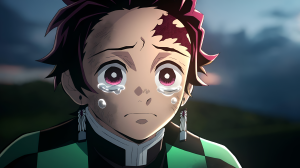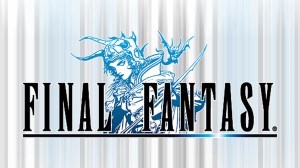Just over three years after successfully crowdfunding Code Monkey Save World and The Princess Who Saved Herself, best-selling comics writer Greg Pak is back on Kickstarter with co-writer Jonathan Coulton adn the art team of Takeshi Miyazawa, colorist Jessica Kholinne, and letterer Simon Bowland.
Videos by ComicBook.com
The project this time around? The Princess Who Saved Her Friends. While the first children’s book in the series was based on Coulton’s popular song of the same name, this time around the story is wholly original…which is part of why Pak was sure to bring Coulton in on the process early, ensuring that it shares the energy of his music.
Coulton and Pak joined ComicBook.com for a chat about the new book, which launched on Kickstarter today. You can back it, and get some cool rewards, here.
How does the status quo at the start of The Princess Who Saved Her Friends differ from where we last left our heroine?
Pak: At the end of the first book, our heroine, Gloria Cheng Epstein Takahara de la Garza Champion, had befriended the giant bee and dragon and wicked queen who had hassled her earlier in the story — and they all formed a band together. Which was awesome! One of the things that I just loved about Glory in that first book is that she stood up for herself, but also that she remained open enough to listen to the other person’s story and work through conflicts to make friends. That felt like a great, humane and human message.
[Start Gallery Call-to-Action Key=7582]But just because you work through one issue with someone doesn’t mean they instantly change and everything becomes perfect, right? If you make friends with someone who used to be mean, there’s a good chance that person might be mean again — to you or to your other friends. The Princess Who Saved Her Friends is all about that tricky situation we’ve all faced as kids and adults — how do you handle it when your friend goes over that line?
So our story begins with Glory and her friends practicing with their band — and the queen, who’s the best musician among them, starts to harangue the dragon, who keeps getting off beat. And then the dragon cries and Glory’s in the middle of a crisis.
So we’re grappling with real human conundrums and emotions, but it remains a big, fun, funny story that also features a whole ‘nother band of mean musicians called the Royals, a battle of the bands, and a surprise ending. Dontcha dare miss it!
In a world where differences of opinions on social media can explode into long-running feuds and friendships deteriorate over political disagreements, do you feel like the “your friends might not be who you think they are” theme in this story is particularly appropriate?
Pak: Oh, sure. I mean, conflict with friends is a basic human experience, so it’s ALWAYS a relevant theme. But I imagine the age of social media gives folks the chance to amplify all their tendencies, good and bad.
Coulton: I don’t think Glory is all that interested in social media, because she’s already got a pretty fantastic interpersonal approach here in the real world. One of the things I really like about the conflict in this book is that it isn’t entirely black and white. While the queen is maybe a bit of a bulldozer in her communication style, she’s not exactly WRONG in this case, she just has a different set of priorities. And of course Glory, who is probably a wiser person than most of us, is able to understand that and find a way to resolve things that doesn’t come down to who’s right and who’s wrong. Good luck doing that on social media.
Was Jonathan involved in developing the story?
Pak: You bet! We’re collaborating on this every step of the way, just like on the first book! He’s even got a co-writer credit this time ’round!
How long have you guys been developing this? Obviously you and Tak have been working together pretty much right along.
Pak: Ever since we finished the first book, we’ve talked about doing a sequel. But I didn’t really figure out what it needed to be until about a year ago. Tak and Jessica and Simon and I had been trucking along doing other projects together like ABC Disgusting together in the meantime, so it was pretty seamless getting the band back together again.
Coulton: It was always a question of finding the right approach. Sequels are tricky, and I think neither of us was interested in rushing into something just for the sake of having a second story. It was when Greg hit on this idea of having an internal band conflict that my eyes lit up. It seemed like a great way to address the kind of friend trouble real people have, and to let Glory flex her people skills in solving it.
Historically your Kickstarters have done very well. Have you guys given thought to what your stretch goals might be or is that getting ahead of ourselves?
Pak: Honestly, we haven’t even talked about that yet! We really just want to make this awesome book. If things go crazy, we’ll wrap our heads around it and see what might make sense.
What is the difference, in terms of process, working with Tak on a children’s book versus a comic?
Pak: It’s actually a very similar process. I write the script, which breaks down each page by panel; Tak sends me character designs and layouts; I say, “Dang, these are awesome!”; Tak draws and inks and we send it along to Jessica and Simon.
The biggest difference isn’t so much a process difference; it’s a slight format adjustment in that the comics we make tend to follow fairly tight sequential storytelling, panel by panel. But a children’s picture book like this tends to skip a lot of middle-point sequential storytelling, jumping instead from big moment to big moment. So the book tends to look more like a series of splash pages rather than a bunch of pages of four to six panels each.
Any chance that with the end of Mech Cadet Yu, we might get another Code Monkey story?
Pak: That… would be pretty cool, wouldn’t it?
Obviously the “Princess…” books have an overt message of empowerment for young girls and a non-white protagonist. Somehow, this seemed less like a “statement” three years ago than it does now. Is that a little confounding?
Pak: Nah, it’s all good! I take the book to comic book conventions and people buy it at first sight just like they did three years ago when it first came out. People are always thrilled to have a fun book that provides this kind of representation. And I still think it’s rare to see a multiracial character in fiction just living her life like Glory does. As a biracial person myself, I think there’s plenty of room for fun stories like this that normalize the existence of folks with multiracial backgrounds.
Coulton: I hope it seems less like a statement! If a non-white female protagonist doesn’t feel edgy anymore, I think that’s fantastic news for everyone who has felt underrepresented in various art forms. And hopefully as everything continues to move in this direction, it’ll mean that more kinds of stories get told. We all win!
Have you guys talked about other stories that you could do with these characters going forward?
Pak: We’ve joked that the next book should be called The Princess Who Saved The World, just because that feels like the right kind of escalation. But we haven’t seriously talked about what a third book would look like. Right now we’re focusing on making The Princess Who Saved Her Friends as awesome as it can be. As with everything Jonathan and I do together, we’ll go with the flow and if and when the next story becomes clear to us, we’ll jump on it!
Coulton: Maybe it’s time for Glory and Code Monkey to team up across some sort of spacetime rift to fight Darth Vader. I’ll look into the licensing issues, Greg.
Pak: Sweet.
Given your shocking success with this on the Thor front, what would Gloria’s karaoke song be?
Pak: Ha ha! Well, naturally, she’d sing Jonathan Coulton’s beloved children’s music classic, “The Princess Who Saved Herself.”
Coulton: Yep. And I bet she’s a ringer.








